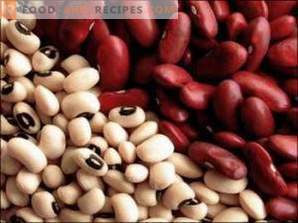
Juicy and sweet melon not only perfectly quenches thirst, but also serves as a source of various vitamins. In particular, the fruits of this melon culture contain vitamins A, B, C and E, folic acid, which helps to increase hemoglobin, as well as various enzymes that stimulate the gastrointestinal tract. In addition, melon is rich in micro and macro elements such as sodium, potassium, magnesium, iron, phosphorus, iodine, calcium, zinc, manganese, copper, cobalt and fluorine. For this reason, regular consumption of melons not only helps to ensure the body's need for many useful substances, but also makes it possible to solve some health problems.
Thus, in addition to the normalization of the digestive processes, melon helps to restore the metabolism, strengthens the heart muscle and perfectly cleans the blood vessels of cholesterol. In addition, thanks to the melon, it is possible to strengthen the immune system in a short period of time, get rid of kidney stones and bladder, overcome stress and depression.
How many calories are in a melon
Plus, melon is the perfect food for those who are struggling with overweight. Its energy value is very low, since 100 g of melon pulp contains only 35 kilocalories. At the same time, 88% of this product consists of water, which is not only easily absorbed by the body, but also helps to remove all kinds of slags, including salts of heavy metals. Melon fats are very small - no more than 0, 5%. Moreover, the main part of them are fatty acids, which are involved in the process of cleavage of proteins and their more complete digestibility. There are also not very many carbohydrates in the melon flesh, only 7.4%, therefore it is senseless to use the fruits of this plant to increase the tone and produce vital energy. But at the expense of pectins, which are contained in excess in melon, the fruits of this plant contribute to the removal of radioactive substances from the body and prevent the formation of malignant tumors. Proteins in melon are also very small, no more than 1, 3%. Therefore, this product creates a false effect of saturation of the body, only temporarily dulling the appetite. At the same time, thanks to dietary fiber, melon stimulates the bowels and can be used as a mild laxative for constipation. It should also be noted that in the melon there are natural substances that perform the functions of antioxidants, so the use of the fruits of this melon culture contributes to the overall rejuvenation of the body at the cellular level.























